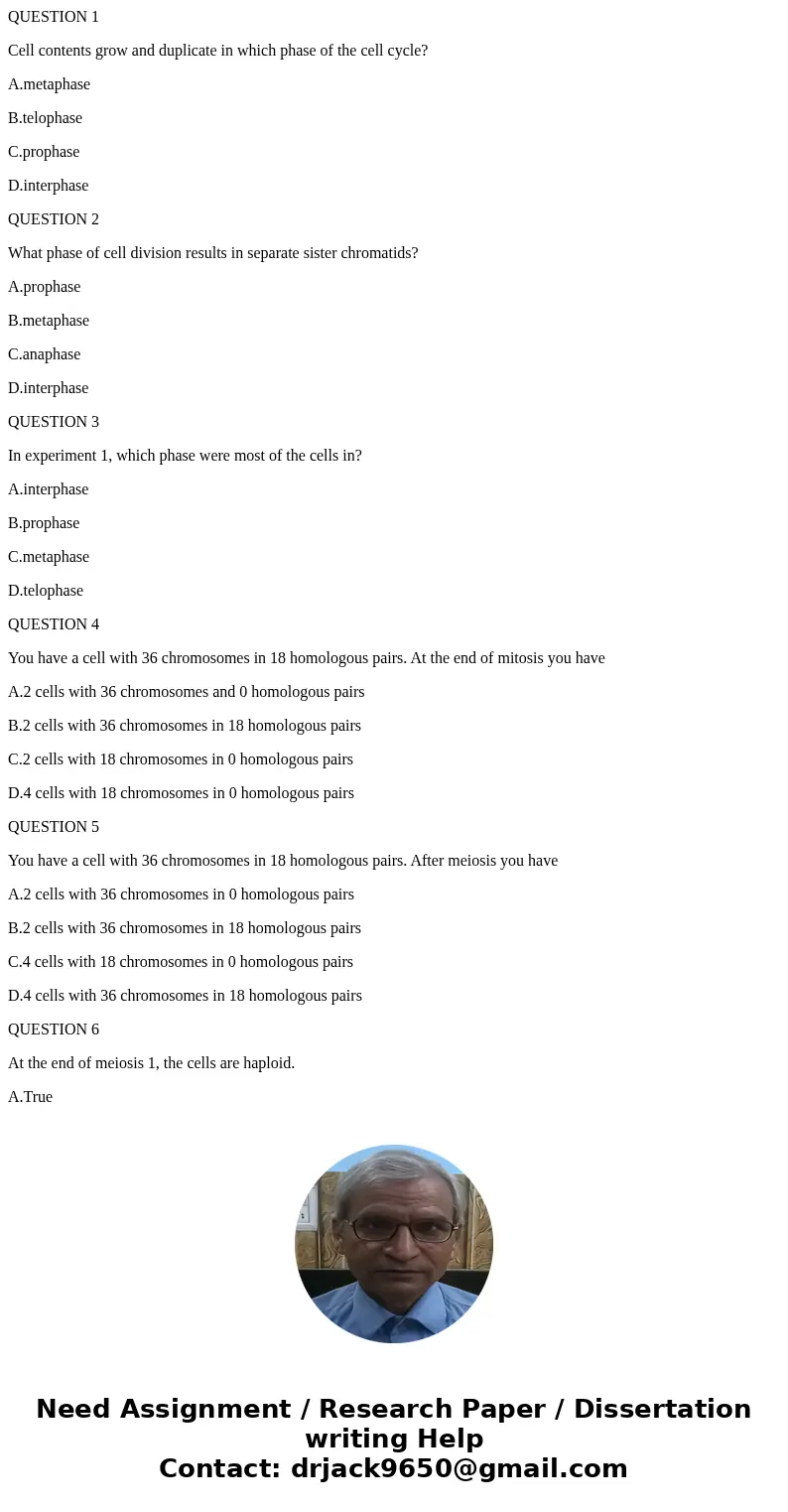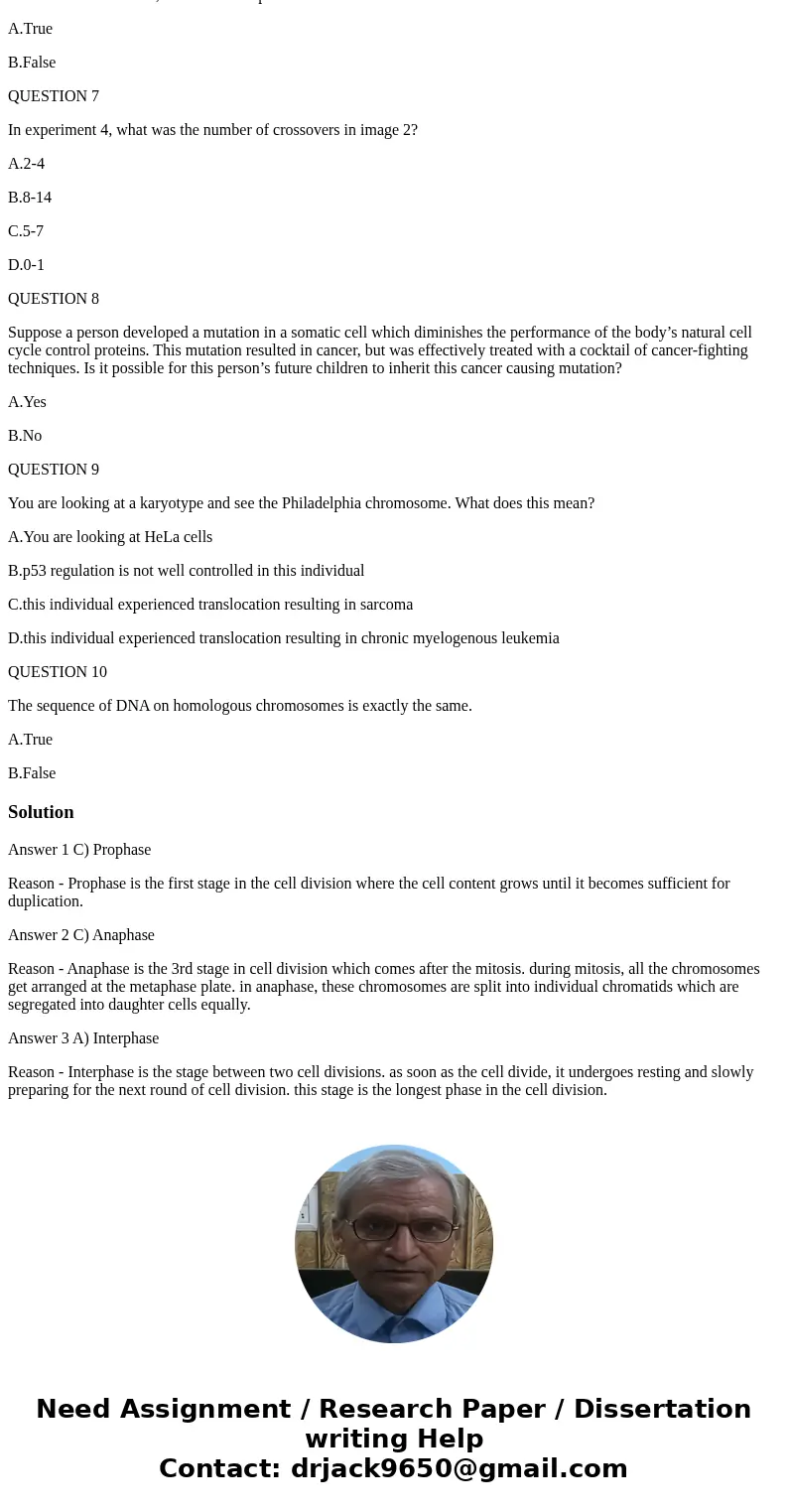QUESTION 1 Cell contents grow and duplicate in which phase o
QUESTION 1
Cell contents grow and duplicate in which phase of the cell cycle?
A.metaphase
B.telophase
C.prophase
D.interphase
QUESTION 2
What phase of cell division results in separate sister chromatids?
A.prophase
B.metaphase
C.anaphase
D.interphase
QUESTION 3
In experiment 1, which phase were most of the cells in?
A.interphase
B.prophase
C.metaphase
D.telophase
QUESTION 4
You have a cell with 36 chromosomes in 18 homologous pairs. At the end of mitosis you have
A.2 cells with 36 chromosomes and 0 homologous pairs
B.2 cells with 36 chromosomes in 18 homologous pairs
C.2 cells with 18 chromosomes in 0 homologous pairs
D.4 cells with 18 chromosomes in 0 homologous pairs
QUESTION 5
You have a cell with 36 chromosomes in 18 homologous pairs. After meiosis you have
A.2 cells with 36 chromosomes in 0 homologous pairs
B.2 cells with 36 chromosomes in 18 homologous pairs
C.4 cells with 18 chromosomes in 0 homologous pairs
D.4 cells with 36 chromosomes in 18 homologous pairs
QUESTION 6
At the end of meiosis 1, the cells are haploid.
A.True
B.False
QUESTION 7
In experiment 4, what was the number of crossovers in image 2?
A.2-4
B.8-14
C.5-7
D.0-1
QUESTION 8
Suppose a person developed a mutation in a somatic cell which diminishes the performance of the body’s natural cell cycle control proteins. This mutation resulted in cancer, but was effectively treated with a cocktail of cancer-fighting techniques. Is it possible for this person’s future children to inherit this cancer causing mutation?
A.Yes
B.No
QUESTION 9
You are looking at a karyotype and see the Philadelphia chromosome. What does this mean?
A.You are looking at HeLa cells
B.p53 regulation is not well controlled in this individual
C.this individual experienced translocation resulting in sarcoma
D.this individual experienced translocation resulting in chronic myelogenous leukemia
QUESTION 10
The sequence of DNA on homologous chromosomes is exactly the same.
A.True
B.False
Solution
Answer 1 C) Prophase
Reason - Prophase is the first stage in the cell division where the cell content grows until it becomes sufficient for duplication.
Answer 2 C) Anaphase
Reason - Anaphase is the 3rd stage in cell division which comes after the mitosis. during mitosis, all the chromosomes get arranged at the metaphase plate. in anaphase, these chromosomes are split into individual chromatids which are segregated into daughter cells equally.
Answer 3 A) Interphase
Reason - Interphase is the stage between two cell divisions. as soon as the cell divide, it undergoes resting and slowly preparing for the next round of cell division. this stage is the longest phase in the cell division.


 Homework Sourse
Homework Sourse